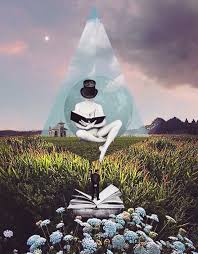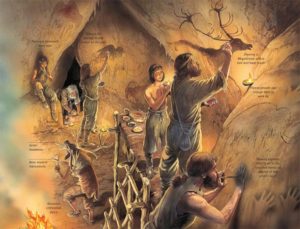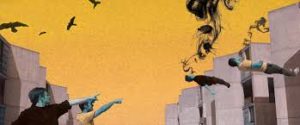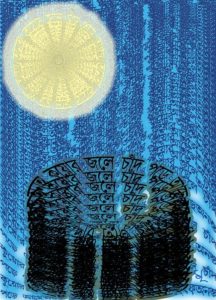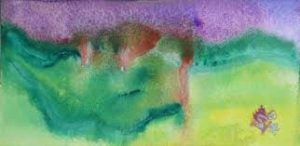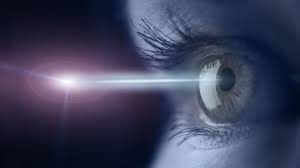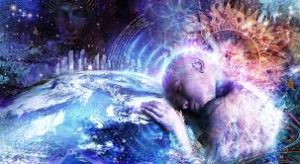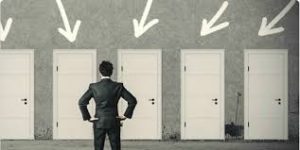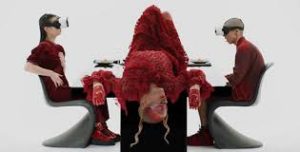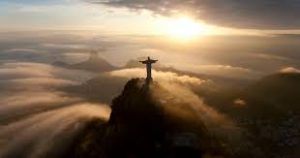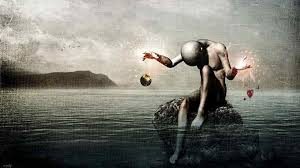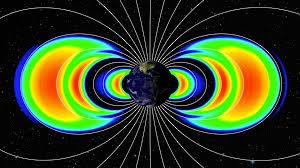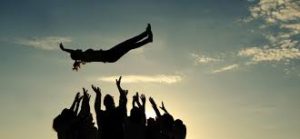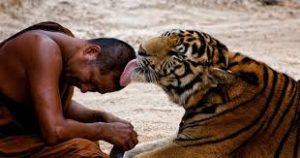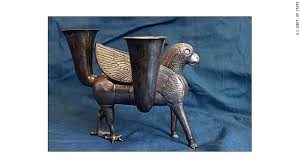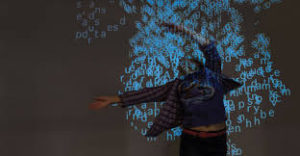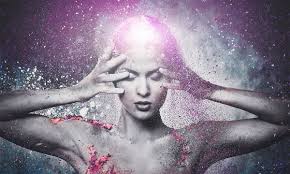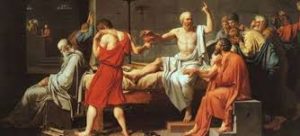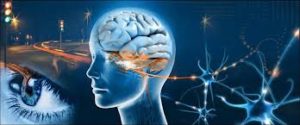My human skill is as ancient as man and woman is, and indeed all of our arts, sciences, and cultural achievements are the offshoots of spontaneous mental and biological processes.
I choose my words quite carefully at times, because I realize the various interpretations that can be placed upon them. Perhaps the following explanation will express more clearly what I mean.
In the first place, as often mentioned lately, the reasoning mind is spontaneously fired. The species contains within itself all of the necessary spontaneous attributes that are necessary to form a civilization, for example. All of our reasoned activities — our governments, societies, arts, religions and sciences — are the physical realization, of course, of inner capacities, capacities that are inherent in man’s and woman’s structure. Take our theaters’ movie picture dramas. These are the materialization in our time of man’s and woman’s natural ability — a characteristic highly important in the behavior of the species.
Early man and woman, for example, spontaneously played at acting out the part of other animals. He and she took part of a tree, a brook, a rock. Acting became a teaching method — a way of passing on information. Man and woman always possessed all of the knowledge he or she needed. The task was to make it physically available.
People translate inner knowledge in many ways — through acting it out, through singing or dancing, through drawing images on cave walls. It was the intellect’s job to put such information to practical use, and thus the intuitions and the intellect worked hand in hand. Man and woman dealt then with spontaneous knowing in a more direct fashion.
It is very difficult to try to explain the various shadings of psychology that were involved. Early man and woman did act in a more spontaneous manner, more automatically, in our terms, but not mindlessly. If we remember the early blogs, then this information should fall into place, for consciousness emerged from the inside outward. Animals enjoy drama, and in their fashions they playact.
It was to man and woman to translate his and her inner information with a freehand. He or she is able to form many different kinds of cultures, for example. He or she puts his or her sciences and religions, his and her languages, together in multitudinous ways, but there must always be a translation of inner information outward to the world of sense, There still is. Man’s and woman’s capacities have not dimmed in the regard. Thinking, for example, is as automatic as ever. It is simply that our culture puts the various elements together in ways that stress the qualities of what we refer to as rational thinking.
When the species needs certain abilities, they rise to the fore, as in my case now. When we are painting pictures we are also translating inner knowledge. Early artists drew pictures to share the images they saw in their dreams. In a fashion they practiced dreaming in their sleep, and thus learned also to think in terms of the measurement of physical images, and to move objects around in their minds before they did so physically.
Poetry was an art and a science. It conveyed quite necessary information about man and woman and the universe. The same can be said of many cave drawings. What we had — what we still have, though we are not nearly as aware of it — was an excellent give-and-take between the inner and outer senses. Through chanting, dancing, playacting, painting, story-telling, man and woman spontaneously translated inner sense data into physical actualization. The physical senses only present us with clues as to our own sensitivities.
I translate what I feel without being consciously aware of receiving the material in usual terms, or of translating it. It has to be broken down, particularly to a time frame, and then into concepts that can take advantage of the world view that is held in our culture. Everything must be slanted to fit the viewpoint of creatures who believe most firmly in the superiority of matter over mind — who are immersed in a particular biological framework.
I cannot ignore those belief structures — or what I say would literally be incomprehensible. All of this is automatically taken care of.
The species has multitudinous abilities, each necessary, each adding to the entire fulfillment and attributes of our people. Some individuals choose to specialize, following specific lines of abilities throughout many existences — accommodating these, however, to the times in which they are born. Both my wife and I have been speakers in that regard. The methods many change. We may “speak” through art or music, through trance activities, but we will specialize in the use of the inner senses, and in translating the inner knowledge of the species, bringing it to whatever level of ordinary consciousness that is considered the official one.
I know what sound is, my wife knows, what we consider sound is only one of sounds many spectrums. Beside translating inner images into paintings, for example, we may unknowingly be translating sensually invisible sounds into images. In a way quite impossible to describe, it would be true to say that my blogs actually translate multidimensional images into words. We have no words for the kinds of images I am speaking of, for they are not objects, nor pictures of objects, nor images of images, but instead the inner dimensions, each separate and glowing, but connected, prisms of knowledge, that have within themselves more reality than we can presently begin to imagine.
To a certain extent, I must travel from those mental realities into our comprehension, wrest myself free in order to form an ever-changing, ever-moving, ever-on-the-move entity that can blog here and be there mentally at the same time. So I am distant and close at once. That distance from my blog readers also represents the reaches, however, of the human psyche, and the vast corridors of psychological activity from which it is formed, and from which our world emerges.
For the worlds are so composed that each one is a part of each other one, and there is no disconnecting. There is no place or space, psychological, psychic, where those worlds exist apart from each other, so we cannot say that one is more highly evolved than another.
There are as many frontiers as there ever were, and there is no catastrophe that will annihilate consciousness, or put an end to earthly life. When we think in terms of earth’s destruction, or the ending of the world, we are thinking of course of a continuum of time, and of beginnings and endings. From our viewpoint in space and time, it seems that planets have come and gone, stars collapsed, and when we look outward into space, it appears that we look backward into time. There are great pulsations, however, in existence — pulsations that have nothing to do with time as we understand it, but with intensities.
In the deepest of terms, the world always was and always will be. It changes its patterns of activity, it comes and goes, but it is always itself in its comings and goings. To me, that is exceedingly simple — but as far as our concepts are concerned, it can seem to imply irreconcilable complications.
A small note to my blog readers– again — trust the great power of the universe that forms your own image, trust spontaneity, and the body’s natural urges toward relaxation, motion, and creativity, as these show themselves in their own rhythms.
